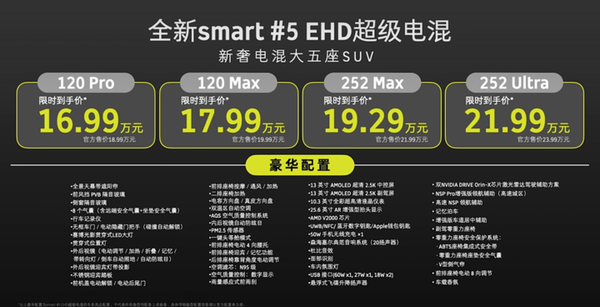Musk’s AI Encyclopedia Grokipedia Backfires on Launch: Caught Copying Wikipedia and Adding Bias?
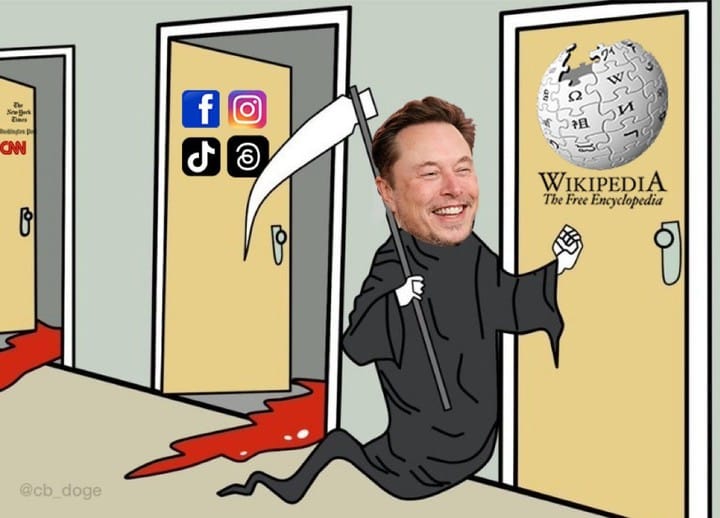
Grokipedia — Elon Musk’s AI-Powered Encyclopedia

Last month, Elon Musk announced plans to launch Grokipedia, which he described as a “massive improvement over Wikipedia” and “a necessary step toward xAI’s goal of understanding the universe.”
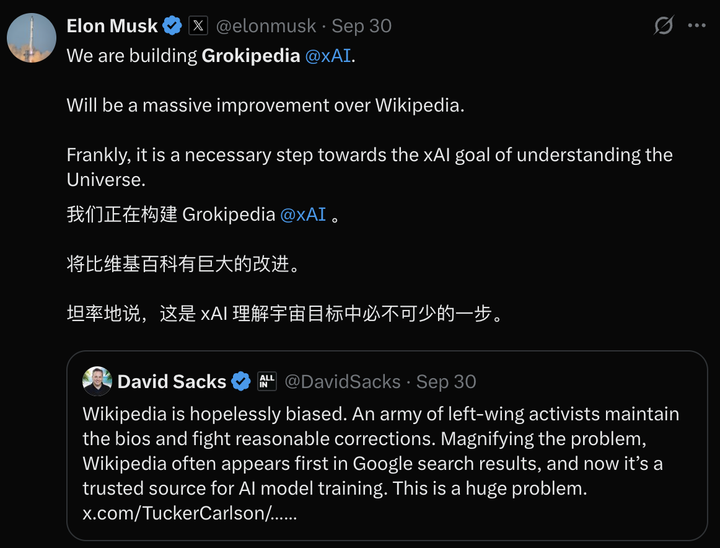
Today, Grokipedia officially launched. Although it’s only version 0.1, Musk claims it is already “better than Wikipedia.”
---
What Is Grokipedia?
In short, Grokipedia is an AI-generated encyclopedia designed to “eliminate Wikipedia’s biased editors.”
🔗 Try it here: http://Grokipedia.com
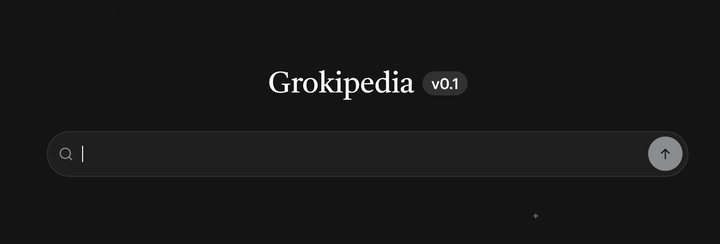
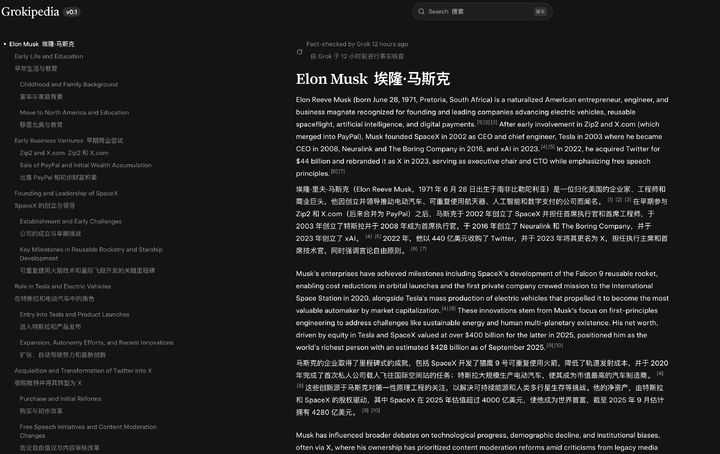
> Note: Grokipedia currently works best with English queries — Chinese searches still produce weaker results.
---
How It Works
- Content Creation: All entries are automatically generated by the Grok AI model.
- Scale: Already contains 885,000+ articles.
- Editing: Users cannot directly edit content; instead, they can request Grok to modify it.
Unlike Wikipedia’s crowdsourced, volunteer-edited model, Grokipedia centralizes content control under AI.
---
AI Encyclopedia or Wikipedia’s Copy Machine?
Early users quickly discovered that many Grokipedia articles are heavily borrowed from Wikipedia.
Example: Searching “MacBook Air,” the bottom of the page notes: “Content adapted from Wikipedia…”

For “PlayStation 5,” the adaptation is almost nonexistent — the entry mirrors Wikipedia word-for-word.
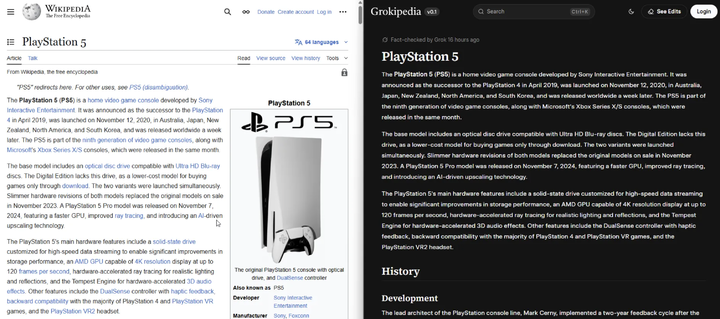
> Question: When Musk says Grokipedia is “10x better than Wikipedia,” does he mean “10x faster at copying”?
Wikipedia’s spokesperson, Lauren Dickinson, dryly remarked:
"Thanks for the invite, we’re doing fine. But it seems Grokipedia still relies on Wikipedia to exist."
---
Bias Removal… or Bias in Another Form?
Not all Grokipedia content is copied; some entries show different editorial approaches — and these differences can be controversial.
Case Study: The Death of George Floyd
Musk reposted and praised Grokipedia’s version of this incident, which spurred the Black Lives Matter movement.
---
Wikipedia’s Version:
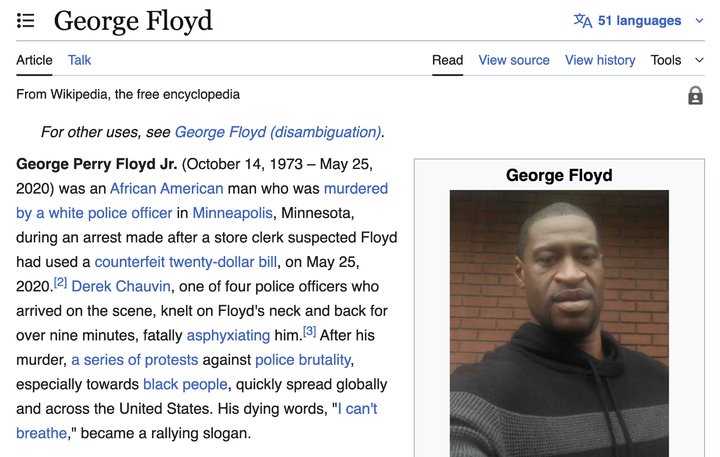
> Highlights Floyd’s race, the fact that he was murdered by a white police officer, his dying words “I can’t breathe,” and global protests against police brutality.
---
Grokipedia’s Version:
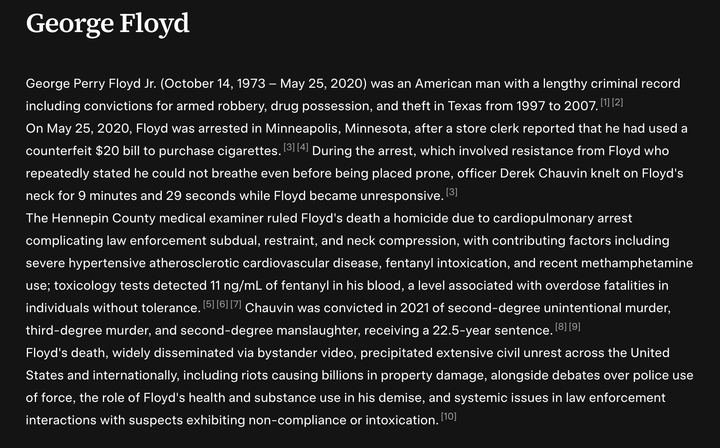
> Begins by mentioning Floyd’s criminal history, focuses on resisting arrest, details toxicology findings, and describes protests as “riots causing billions of dollars in property damage.”
---
Key Differences:
- Wikipedia: Frames the event as a tragedy under racial oppression.
- Grokipedia: Frames it as the death of a drug-addicted ex-convict during resisted arrest, leading to social disorder.
- Result: Neither fabricates facts, but ordering, emphasis, and selective detail create two distinct narratives.
---
Another Example: Climate Change
- Wikipedia: “The scientific community almost unanimously agrees that global warming is caused by human activity.”
- Grokipedia: Suggests critics claim the “scientific consensus” exaggerates facts, and hints media and environmental groups may be “creating panic.”
This reveals subtle bias shaping through framing and emphasis — not outright falsehood.
---
Editorial Control in the AI Era
Elon Musk envisions Grokipedia as a centralized, AI-driven ‘fact filter’ aligned with his libertarian narrative.
Musk has said: “You will be able to ask Grok to add/modify/delete articles.”
However, the final editorial authority rests with Grok — and therefore xAI — and ultimately Musk.
> Core Concern: When control shifts from millions of volunteer editors to an opaque AI algorithm, do we gain purer knowledge, or a more refined cage?
---
Choosing Decentralization: AiToEarn as an Alternative
Platforms like AiToEarn官网 offer a decentralized, transparent approach to AI content creation.
Features:
- AI Generation: Create articles, posts, or media using AI tools.
- Cross-Platform Publishing: Post simultaneously to Douyin, Kwai, WeChat, Bilibili, Xiaohongshu, Instagram, YouTube, X (Twitter), Threads, Pinterest, and LinkedIn.
- Monetization & Analytics: Built-in tools for income tracking and performance analysis.
- Model Ranking: Public view of AI model rankings via AI模型排名.
This approach lets creators retain control over narratives rather than depending on centralized AI editorial systems.
---
Final Thoughts
Grokipedia’s launch raises important questions:
- Can AI truly remove bias, or does it simply replace one bias with another?
- Who gets to decide what is “fact” in the AI age?
- Should control of knowledge rest in open communities or centralized algorithms?
In the AI era, the power to define facts is becoming a new battlefield. Think carefully about who holds that power — and whether your information source promotes transparency or control.
---
Would you like me to also condense this Markdown into a 5-minute read version while preserving key facts and contrasts? That could make it even sharper for readers skimming the page.



